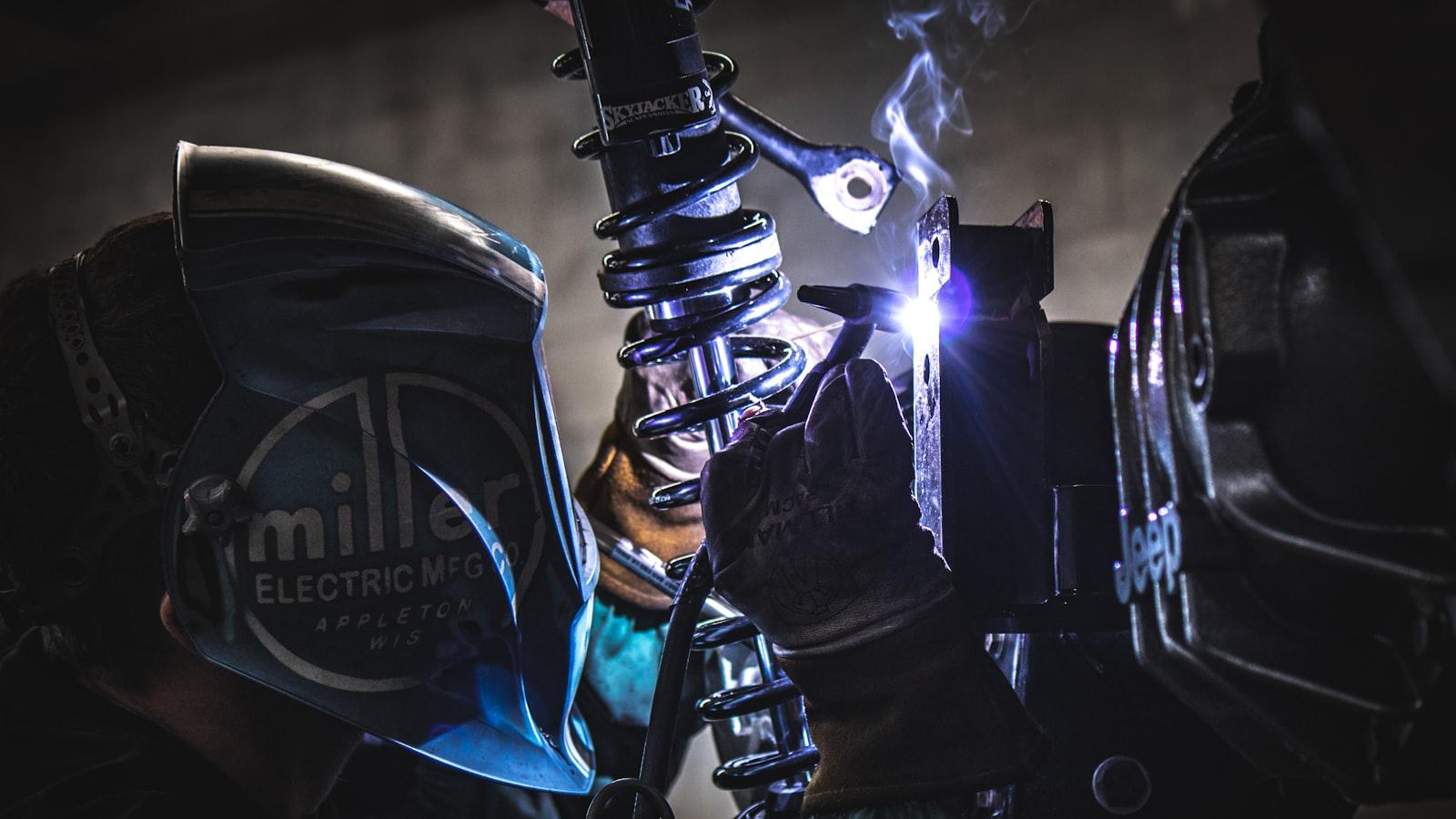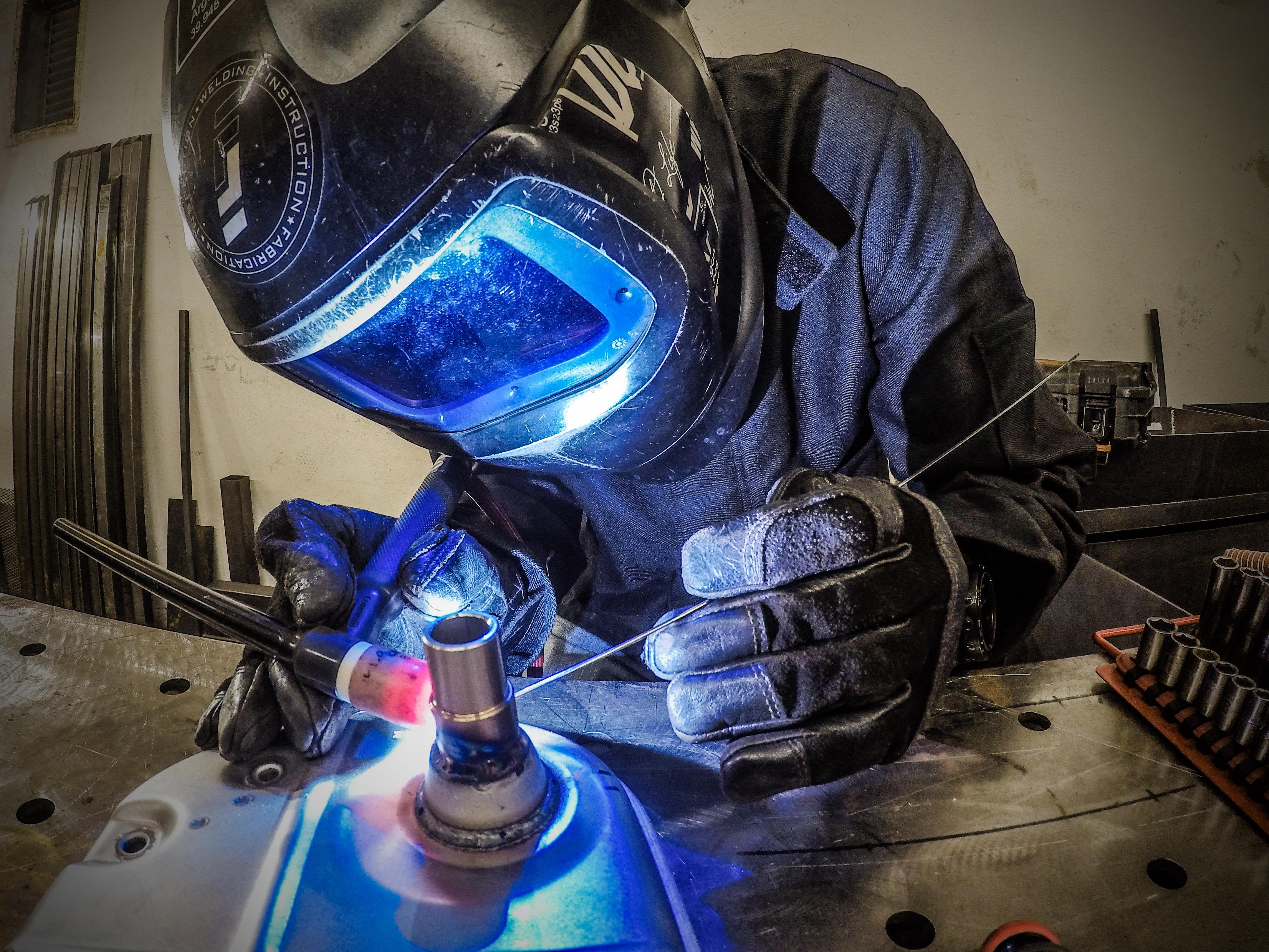A welder is a skilled tradesperson who joins pieces of metal together using various welding techniques. With over 13 years of experience in the industry, I have witnessed firsthand the precision and expertise required to excel as a welder. From my early days at Northeast Texas Community College to my work with AJ & FO Welding Services and Texas Commercial Diving, I have honed my craft and contributed to projects both on land and underwater. In this article, we will explore the diverse roles and responsibilities of a welder, as well as the essential skills and training needed to succeed in this dynamic field.
Table of Contents
- - The Vital Role of Welders in the Construction Industry
- – Understanding the Skills and Expertise Required to Become a Certified Welder
- – Exploring Different Types of Welding Techniques and Processes
- – Importance of Safety Measures and Protective Gear for Welders
- – The Future of Welding: Emerging Technologies and Trends in the Field
- Q&A
- My thoughts
– The Vital Role of Welders in the Construction Industry

Welders play a crucial role in the construction industry, working on various projects such as building bridges, skyscrapers, and pipelines. But what exactly is a welder? A welder is a skilled tradesperson who fuses metal pieces together using heat and pressure. Welders must possess a unique set of skills and knowledge to excel in their craft.
The job of a welder requires utmost precision and attention to detail. They must be able to read and interpret blueprints, understand welding symbols, and operate a variety of welding equipment. Welders also need to have a strong understanding of metallurgy to ensure that the metals they are working with are compatible.
Welders are responsible for joining metal components together to create strong, durable structures. Their work is absolutely crucial in ensuring the safety and integrity of buildings, bridges, and other structures. Without skilled welders, many construction projects would simply not be possible.
In addition to their technical skills, welders must also possess physical endurance and stamina. The job can be physically demanding, requiring welders to work in tight spaces, at heights, and in all types of weather conditions. Welders must also adhere to strict safety protocols to prevent accidents and injuries on the job.
In conclusion, welders play a vital role in the construction industry, using their expertise to join metal pieces together and create the structures that we rely on every day. Their work is not only essential but also incredibly skilled and demanding. The next time you see a completed building or bridge, take a moment to appreciate the hard work and dedication of the welders who made it all possible.
- Understanding the Skills and Expertise Required to Become a Certified Welder

To become a certified welder, one must possess a unique set of skills and expertise that are essential for excelling in this field. Welding is not just about joining two pieces of metal together; it requires precision, patience, and a keen eye for detail. A certified welder must be able to work with various materials, understand different welding techniques, and ensure the utmost safety at all times.
One of the key skills required to become a certified welder is the ability to read and interpret blueprints and technical drawings. This skill is crucial for understanding the specifications of a welding project and ensuring that the finished product meets the required standards. Additionally, a certified welder must have a solid understanding of metallurgy and be able to identify the optimal welding methods for different types of metals.
Another important skill for a certified welder is hand-eye coordination. Welding involves using precise hand movements to manipulate the welding equipment and create strong, clean welds. Without good hand-eye coordination, it can be challenging to maintain the accuracy and quality of the welds. This skill is honed through practice and experience, and is essential for becoming a proficient welder.
Attention to detail is also a critical skill for a certified welder. Welding requires meticulous precision to ensure that the welds are strong, durable, and aesthetically pleasing. A certified welder must pay close attention to the welding process, checking for any defects or imperfections that could compromise the integrity of the weld. This level of detail-oriented focus is what sets apart a skilled welder from a novice.
Communication skills are essential for a certified welder, as they often work as part of a team on various projects. Being able to effectively communicate with colleagues, supervisors, and clients is crucial for ensuring that the welding work meets the required specifications and deadlines. A certified welder must be able to follow instructions, ask questions when needed, and collaborate with others to achieve the desired outcome.
- Exploring Different Types of Welding Techniques and Processes

What is a welder? Welders are skilled professionals who specialize in joining metals together through various welding techniques and processes. These individuals play a crucial role in industries such as construction, manufacturing, automotive, and aerospace, where strong and durable metal joints are essential.
Welding is a versatile trade that requires a high level of precision, attention to detail, and expertise. Welders must be proficient in using different types of welding equipment, including gas and arc welders, to create solid and secure bonds between metal pieces. The ability to read and interpret blueprints and technical drawings is also a crucial aspect of a welder’s job.
One of the primary responsibilities of a welder is to ensure that all welded joints meet the required specifications and quality standards. This involves performing visual inspections, conducting tests, and making any necessary adjustments to achieve the desired results. Welders must also adhere to safety protocols and guidelines to prevent accidents and injuries in the workplace.
In addition to their technical skills, welders must possess excellent problem-solving abilities and be able to work effectively under pressure. They must be able to communicate with other team members and collaborate on projects to ensure that deadlines are met and objectives are achieved. Welders often work in challenging environments, so resilience and adaptability are key traits for success in this field.
Overall, welders play a vital role in the metalworking industry by utilizing their expertise to create strong and durable metal structures. Their craftsmanship and dedication contribute to the successful completion of construction projects, the manufacturing of essential goods, and the maintenance of critical infrastructure. If you have an interest in working with metal and enjoy hands-on work, a career as a welder may be a rewarding choice for you.
– Importance of Safety Measures and Protective Gear for Welders

Welders are skilled professionals who join metal pieces together to create structures, machines, and various products. Their work involves using high heat to melt and fuse metals, making the welding process potentially hazardous if safety precautions are not taken seriously. Welders work in a variety of industries, from construction to manufacturing, and their expertise is crucial in creating strong and durable metal structures.
When it comes to welding, safety should always be the top priority. Welders are exposed to various risks, including burns, electric shocks, and exposure to hazardous fumes. Wearing proper protective gear is essential to protect against these dangers. This includes wearing flame-resistant clothing, safety glasses, gloves, and welding helmets. By investing in high-quality safety gear, welders can minimize the risk of accidents and injuries on the job.
One of the most crucial safety measures for welders is ensuring proper ventilation in their work area. Welding produces fumes and gases that can be toxic if inhaled. Proper ventilation systems help remove these harmful substances from the air, protecting the welder’s respiratory system. Additionally, using respirators can provide an extra layer of protection against fumes and particulates, ensuring the welder’s overall health and well-being.
Aside from protective gear and ventilation, welders should also receive proper training on safety practices and emergency procedures. Understanding how to handle welding equipment safely, as well as knowing what to do in case of an accident, is essential for a welder’s job performance. By staying informed and following safety protocols, welders can work confidently and efficiently, knowing that they are prepared for any situation that may arise.
In conclusion, the importance of safety measures and protective gear for welders cannot be overstated. Welding is a skilled trade that requires precision and attention to detail, but it also involves inherent risks that must be mitigated through proactive safety practices. By prioritizing safety, welders can ensure their well-being and longevity in their careers, knowing that they are taking the necessary steps to protect themselves on the job.
– The Future of Welding: Emerging Technologies and Trends in the Field

A welder is a skilled tradesperson who specializes in joining metal pieces together using various welding techniques. This profession requires a high level of expertise and precision to ensure that the resulting welds are strong and durable. It’s not just about melting metal together; it’s about creating a bond that can withstand extreme conditions and pressures.
Welders play a crucial role in a wide range of industries, from construction and manufacturing to automotive and aerospace. Their work is essential for building structures, fabricating machinery, and repairing equipment. Without welders, many of the things we rely on in our daily lives would not be possible.
One of the most exciting aspects of being a welder is the continuous advancement of technology in the field. New welding techniques, equipment, and materials are constantly being developed to make the welding process more efficient, effective, and safer. As a welder, staying up-to-date with these emerging technologies and trends is crucial to remain competitive in the industry.
With the rapid pace of technological advancements, the future of welding looks bright. Innovations such as robotic welding, laser welding, and 3D metal printing are revolutionizing the way metal fabrication is done. These technologies not only increase productivity and precision but also open up new possibilities for creativity and experimentation in the welding realm.
In conclusion, being a welder is more than just a job – it’s a craft that requires skill, dedication, and a passion for working with metal. As the world of welding continues to evolve, welders must embrace new technologies and techniques to stay ahead of the curve. The future of welding is full of exciting opportunities for those willing to explore and push the boundaries of what is possible in the field.
Q&A
Q: What is a welder?
A: A welder is a skilled tradesperson who specializes in joining metal pieces together by melting them. This process creates a secure bond that is crucial in various industries such as construction, manufacturing, and automotive.
Q: What are the responsibilities of a welder?
A: Welders are responsible for reading and interpreting blueprints, selecting appropriate welding techniques and equipment, preparing surfaces for welding, and performing the actual welding process. They must also inspect and test the welded joints to ensure they meet quality standards.
Q: What are the different types of welding processes?
A: There are several types of welding processes, including arc welding, MIG welding, TIG welding, and oxyacetylene welding. Each process has its own set of techniques and equipment, and is used for different types of metal and applications.
Q: What skills are required to become a successful welder?
A: Successful welders possess strong attention to detail, manual dexterity, hand-eye coordination, and the ability to work in a variety of environments. They also need to have a solid understanding of metallurgy and welding techniques, as well as the ability to problem-solve and troubleshoot welding issues.
Q: How can someone become a welder?
A: To become a welder, one typically needs to complete a formal training program at a technical school or community college. They can also pursue an apprenticeship program or on-the-job training. Additionally, obtaining certification from organizations such as the American Welding Society (AWS) can help demonstrate competency and skill in the field.
My thoughts
In conclusion, a welder is a skilled tradesperson who utilizes heat and pressure to join metals together. They play a crucial role in various industries such as construction, manufacturing, and automotive. By understanding the different welding processes, materials, and safety precautions, welders are able to create strong and durable connections that are essential for structural integrity and product quality. As demand for skilled welders continues to grow, it is important to recognize the valuable expertise and contributions that welders bring to the workforce.

Leave a Reply